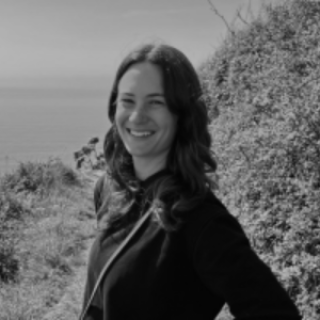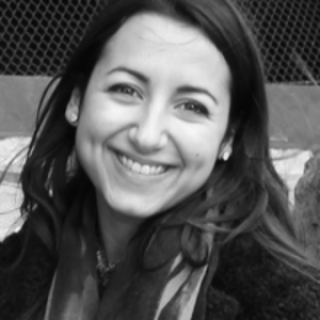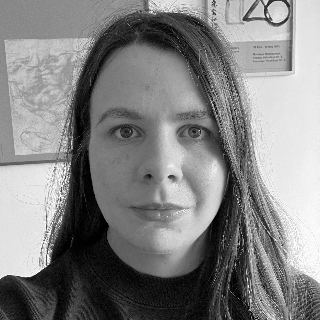UCL History of Art celebrates four Leverhulme Fellowship successes
25 August 2023
Congratulations to Kimberly Schreiber, Moran Sheleg, Marta Zboralska and Chloë Julius who have been accepted onto the prestigious fellowship scheme for early career researchers.
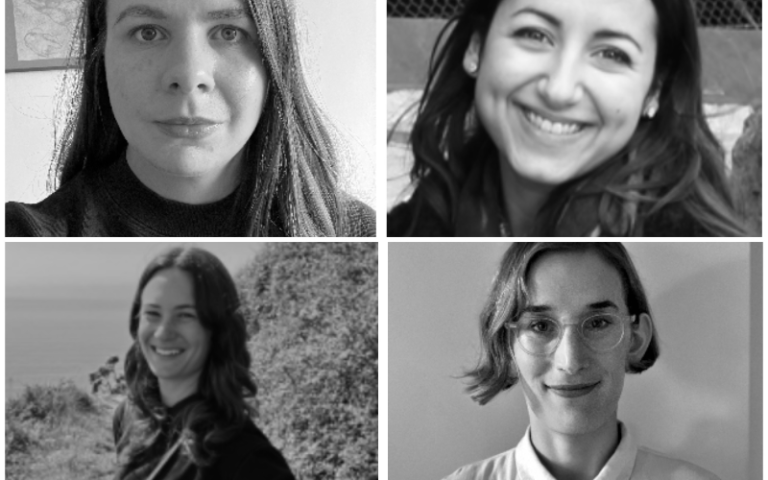
Kimberly is an Associate Lecturer at UCL History of Art and completed her PhD in the Department in 2022. Her doctoral thesis analysed the relationship between documentary and the reorganisation of the carceral state in the United States during the 1960s and 1970s. More broadly, her teaching and research focus on histories of photography and their intersection with processes of racialisation in the US and beyond. She will take up a Leverhulme Early Career Fellowship at the Institute of the Americas at UCL in May 2024.
Project - ‘The Visual Politics of Broken Windows Policing’
My project considers the relationship between photography and the emergence of the broken windows theory of policing in the United States. A criminological theory that proposes a causal link between the appearance of property and the propensity for violent crime, broken windows became widely adopted as a common-sense approach to policing American cities during the 1980s and after. My project builds an archive of photographic practices –– including the work of photographers who became ‘embedded’ within police departments, photographs and films from the NYPD’s own Photo Unit, and photographic records of performance artists’ encounters with police –– to understand how the legitimacy of broken windows was both constructed and contested photographically.
Many studies have accounted for how photography has served to codify and order the criminal body in the nineteenth century. However, my project will argue that, in order to attend to the relationship between photography and broken windows in the latter half of the twentieth century, we must turn our attention to issues of space and property. I am particularly interested in how photography functions as a technology through which spaces, such as the street or the home, are rendered public or private and therefore available to policing or not. Ultimately, my project argues that art historical methodologies can offer crucial insights into the broken windows theory, allowing us to understand both its extension and reformulation of the visual dynamics of policing within a new context.
Moran received her PhD, funded by an AHRC/LAHP scholarship, from University College London in 2017. She completed a postdoctoral fellowship at the Paul Mellon Centre and has worked as an Associate Lecturer at the Ruskin School of Art, University of Oxford, and the Courtauld Institute of Art. Her writing has appeared in several journals, edited volumes, and exhibition catalogues. Her first monograph, How to Make a Past: Ad Reinhardt versus Art History, is forthcoming from MIT Press and her edited volume, Lifework, will be published by Manchester University Press in 2024.
Project - ‘Idea, paper, object: Modernism and Saul Steinberg’s expanded drawing’
Saul Steinberg (1914-1999) was an artist whose drawings captured a period of American history and redefined what drawing could do. My project examines Steinberg’s work on and off paper, positioning his art as a material form of theory that has far-reaching consequences for the conceptualisation of modernism. Analysing his lesser-known experiments in photography, collage, and sculpture, I propose Steinberg’s work as an example of expanded drawing, which remains irreducible to language or the graphic realm. Consequently, the modernism that emerges through it is as much an intellectual and philosophical phenomenon as it is an aesthetic one.
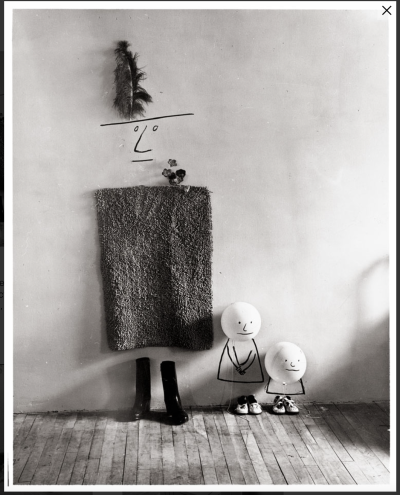
Saul Steinberg, Untitled, 1950
Gelatin silver print, 10 x 8 in.
Private collection
© The Saul Steinberg Foundation/Artists Rights Society (ARS) New York.
Marta Zboralska received her PhD from UCL in 2020 and is currently a Departmental Lecturer in the History of Art at the University of Oxford. Her articles and reviews have appeared in Art Journal, Archives of American Art Journal, Third Text Online and Art Margins Online. She will take up her Leverhulme Early Career Fellowship at the Ruskin School of Art, University of Oxford, in October 2023.
Project - 'Art After Witold Gombrowicz'
My project maps responses to the Polish writer Witold Gombrowicz across the field of visual art. Demonstrating the author’s wide-ranging, transnational influence on artists – which has thus far escaped recognition – I use object-centred art-historical methodologies to study how Gombrowicz’s prose has been transformed into a variety of materials and mediums, traversing geographical contexts. By comparing these multifarious translations of Gombrowicz’s writings into objects, I locate reading as a matter of form. In so doing, I challenge the dominant understanding of interpretation as a process that turns works of art into text rather than vice versa.
Chloë Julius gained her UCL PhD in 2022 and is now based at the University of Nottingham, where she is a Leverhulme Early Career Fellow and the Deputy Director of the Centre for Research in Visual Culture. Principally focussing on the historiography of twentieth-century art history in Britain and the United States, Chloë’s writing has been published in Art History, Oxford Art Journal and Shofar: An Interdisciplinary Journal of Jewish Studies. Chloë is currently co-editing two projects: Cases of Citations: On Literature in Art, a forthcoming book published with Manchester University Press; and 'The Ends of Criticism', a special issue for the journal Selva. From 2022–2023 Chloë was the Archives and Library Fellow at the Paul Mellon Centre.
Project - 'Barbara Rose and the critique of American art after the 1960s'
This project explores the critique of American art after the 1960s through the intellectual contribution of art historian, critic and curator Barbara Rose. During the 1960s, Rose was one of the most well-read and vocal defenders of American art, yet her subsequent disillusionment caused her work to fall out of favour. In providing the first in-depth study of Rose's unique intellectual trajectory, Chloë’s project will pick up this forgotten but crucial strain of the historiography of American art. Underpinned by original archival research, the resulting monograph will advance an art history constituted by its critics as well as its champions.
 Close
Close


